- Home
- George R. R. Martin
A Dance with Dragons: A Song of Ice and Fire: Book Five Page 2
A Dance with Dragons: A Song of Ice and Fire: Book Five Read online
Page 2
The gods gave no answer. After a while, the smoke ceased to rise as well. Already the little hut was growing colder. Varamyr had no flint, no tinder, no dry kindling. He would never get the fire burning again, not by himself. “Thistle,” he called out, his voice hoarse and edged with pain. “Thistle!”
Her chin was pointed and her nose flat, and she had a mole on one cheek with four dark hairs growing from it. An ugly face, and hard, yet he would have given much to glimpse it in the door of the hut. I should have taken her before she left. How long had she been gone? Two days? Three? Varamyr was uncertain. It was dark inside the hut, and he had been drifting in and out of sleep, never quite sure if it was day or night outside. “Wait,” she’d said. “I will be back with food.” So like a fool he’d waited, dreaming of Haggon and Bump and all the wrongs he had done in his long life, but days and nights had passed and Thistle had not returned. She won’t be coming back. Varamyr wondered if he had given himself away. Could she tell what he was thinking just from looking at him, or had he muttered in his fever dream?
Abomination, he heard Haggon saying. It was almost as if he were here, in this very room. “She is just some ugly spearwife,” Varamyr told him. “I am a great man. I am Varamyr, the warg, the skinchanger, it is not right that she should live and I should die.” No one answered. There was no one there. Thistle was gone. She had abandoned him, the same as all the rest.
His own mother had abandoned him as well. She cried for Bump, but she never cried for me. The morning his father pulled him out of bed to deliver him to Haggon, she would not even look at him. He had shrieked and kicked as he was dragged into the woods, until his father slapped him and told him to be quiet. “You belong with your own kind,” was all he said when he flung him down at Haggon’s feet.
He was not wrong, Varamyr thought, shivering. Haggon taught me much and more. He taught me how to hunt and fish, how to butcher a carcass and bone a fish, how to find my way through the woods. And he taught me the way of the warg and the secrets of the skinchanger, though my gift was stronger than his own.
Years later he had tried to find his parents, to tell them that their Lump had become the great Varamyr Sixskins, but both of them were dead and burned. Gone into the trees and streams, gone into the rocks and earth. Gone to dirt and ashes. That was what the woods witch told his mother, the day Bump died. Lump did not want to be a clod of earth. The boy had dreamed of a day when bards would sing of his deeds and pretty girls would kiss him. When I am grown I will be the King-Beyond-the-Wall, Lump had promised himself. He never had, but he had come close. Varamyr Sixskins was a name men feared. He rode to battle on the back of a snow bear thirteen feet tall, kept three wolves and a shadowcat in thrall, and sat at the right hand of Mance Rayder. It was Mance who brought me to this place. I should not have listened. I should have slipped inside my bear and torn him to pieces.
Before Mance, Varamyr Sixskins had been a lord of sorts. He lived alone in a hall of moss and mud and hewn logs that had once been Haggon’s, attended by his beasts. A dozen villages did him homage in bread and salt and cider, offering him fruit from their orchards and vegetables from their gardens. His meat he got himself. Whenever he desired a woman he sent his shadowcat to stalk her, and whatever girl he’d cast his eye upon would follow meekly to his bed. Some came weeping, aye, but still they came. Varamyr gave them his seed, took a hank of their hair to remember them by, and sent them back. From time to time, some village hero would come with spear in hand to slay the beastling and save a sister or a lover or a daughter. Those he killed, but he never harmed the women. Some he even blessed with children. Runts. Small, puny things, like Lump, and not one with the gift.
Fear drove him to his feet, reeling. Holding his side to staunch the seep of blood from his wound, Varamyr lurched to the door and swept aside the ragged skin that covered it to face a wall of white. Snow. No wonder it had grown so dark and smoky inside. The falling snow had buried the hut.
When Varamyr pushed at it, the snow crumbled and gave way, still soft and wet. Outside, the night was white as death; pale thin clouds danced attendance on a silver moon, while a thousand stars watched coldly. He could see the humped shapes of other huts buried beneath drifts of snow, and beyond them the pale shadow of a weirwood armored in ice. To the south and west the hills were a vast white wilderness where nothing moved except the blowing snow. “Thistle,” Varamyr called feebly, wondering how far she could have gone. “Thistle. Woman. Where are you?”
Far away, a wolf gave howl.
A shiver went through Varamyr. He knew that howl as well as Lump had once known his mother’s voice. One Eye. He was the oldest of his three, the biggest, the fiercest. Stalker was leaner, quicker, younger, Sly more cunning, but both went in fear of One Eye. The old wolf was fearless, relentless, savage.
Varamyr had lost control of his other beasts in the agony of the eagle’s death. His shadowcat had raced into the woods, whilst his snow bear turned her claws on those around her, ripping apart four men before falling to a spear. She would have slain Varamyr had he come within her reach. The bear hated him, had raged each time he wore her skin or climbed upon her back.
His wolves, though …
My brothers. My pack. Many a cold night he had slept with his wolves, their shaggy bodies piled up around him to help keep him warm. When I die they will feast upon my flesh and leave only bones to greet the thaw come spring. The thought was queerly comforting. His wolves had often foraged for him as they roamed; it seemed only fitting that he should feed them in the end. He might well begin his second life tearing at the warm dead flesh of his own corpse.
Dogs were the easiest beasts to bond with; they lived so close to men that they were almost human. Slipping into a dog’s skin was like putting on an old boot, its leather softened by wear. As a boot was shaped to accept a foot, a dog was shaped to accept a collar, even a collar no human eye could see. Wolves were harder. A man might befriend a wolf, even break a wolf, but no man could truly tame a wolf. “Wolves and women wed for life,” Haggon often said. “You take one, that’s a marriage. The wolf is part of you from that day on, and you’re part of him. Both of you will change.”
Other beasts were best left alone, the hunter had declared. Cats were vain and cruel, always ready to turn on you. Elk and deer were prey; wear their skins too long, and even the bravest man became a coward. Bears, boars, badgers, weasels … Haggon did not hold with such. “Some skins you never want to wear, boy. You won’t like what you’d become.” Birds were the worst, to hear him tell it. “Men were not meant to leave the earth. Spend too much time in the clouds and you never want to come back down again. I know skinchangers who’ve tried hawks, owls, ravens. Even in their own skins, they sit moony, staring up at the bloody blue.”
Not all skinchangers felt the same, however. Once, when Lump was ten, Haggon had taken him to a gathering of such. The wargs were the most numerous in that company, the wolf-brothers, but the boy had found the others stranger and more fascinating. Borroq looked so much like his boar that all he lacked was tusks, Orell had his eagle, Briar her shadowcat (the moment he saw them, Lump wanted a shadowcat of his own), the goat woman Grisella …
None of them had been as strong as Varamyr Sixskins, though, not even Haggon, tall and grim with his hands as hard as stone. The hunter died weeping after Varamyr took Greyskin from him, driving him out to claim the beast for his own. No second life for you, old man. Varamyr Threeskins, he’d called himself back then. Greyskin made four, though the old wolf was frail and almost toothless and soon followed Haggon into death.
Varamyr could take any beast he wanted, bend them to his will, make their flesh his own. Dog or wolf, bear or badger …
Thistle, he thought.
Haggon would call it an abomination, the blackest sin of all, but Haggon was dead, devoured, and burned. Mance would have cursed him as well, but Mance was slain or captured. No one will ever know. I will be Thistle the spearwife, and Varamyr Sixskins will be dead. His gift
would perish with his body, he expected. He would lose his wolves, and live out the rest of his days as some scrawny, warty woman … but he would live. If she comes back. If I am still strong enough to take her.
A wave of dizziness washed over Varamyr. He found himself upon his knees, his hands buried in a snowdrift. He scooped up a fistful of snow and filled his mouth with it, rubbing it through his beard and against his cracked lips, sucking down the moisture. The water was so cold that he could barely bring himself to swallow, and he realized once again how hot he was.
The snowmelt only made him hungrier. It was food his belly craved, not water. The snow had stopped falling, but the wind was rising, filling the air with crystal, slashing at his face as he struggled through the drifts, the wound in his side opening and closing again. His breath made a ragged white cloud. When he reached the weirwood tree, he found a fallen branch just long enough to use as a crutch. Leaning heavily upon it, he staggered toward the nearest hut. Perhaps the villagers had forgotten something when they fled … a sack of apples, some dried meat, anything to keep him alive until Thistle returned.
He was almost there when his crutch snapped beneath his weight, and his legs went out from under him.
How long he sprawled there with his blood reddening the snow Varamyr could not have said. The snow will bury me. It would be a peaceful death. They say you feel warm near the end, warm and sleepy. It would be good to feel warm again, though it made him sad to think that he would never see the green lands, the warm lands beyond the Wall that Mance used to sing about. “The world beyond the Wall is not for our kind,” Haggon used to say. “The free folk fear skinchangers, but they honor us as well. South of the Wall, the kneelers hunt us down and butcher us like pigs.”
You warned me, Varamyr thought, but it was you who showed me Eastwatch too. He could not have been more than ten. Haggon traded a dozen strings of amber and a sled piled high with pelts for six skins of wine, a block of salt, and a copper kettle. Eastwatch was a better place to trade than Castle Black; that was where the ships came, laden with goods from the fabled lands beyond the sea. The crows knew Haggon as a hunter and a friend to the Night’s Watch, and welcomed the news he brought of life beyond their Wall. Some knew him for a skinchanger too, but no one spoke of that. It was there at Eastwatch-by-the-Sea that the boy he’d been first began to dream of the warm south.
Varamyr could feel the snowflakes melting on his brow. This is not so bad as burning. Let me sleep and never wake, let me begin my second life. His wolves were close now. He could feel them. He would leave this feeble flesh behind, become one with them, hunting the night and howling at the moon. The warg would become a true wolf. Which, though?
Not Sly. Haggon would have called it abomination, but Varamyr had often slipped inside her skin as she was being mounted by One Eye. He did not want to spend his new life as a bitch, though, not unless he had no other choice. Stalker might suit him better, the younger male … though One Eye was larger and fiercer, and it was One Eye who took Sly whenever she went into heat.
“They say you forget,” Haggon had told him, a few weeks before his own death. “When the man’s flesh dies, his spirit lives on inside the beast, but every day his memory fades, and the beast becomes a little less a warg, a little more a wolf, until nothing of the man is left and only the beast remains.”
Varamyr knew the truth of that. When he claimed the eagle that had been Orell’s, he could feel the other skinchanger raging at his presence. Orell had been slain by the turncloak crow Jon Snow, and his hate for his killer had been so strong that Varamyr found himself hating the beastling boy as well. He had known what Snow was the moment he saw that great white direwolf stalking silent at his side. One skinchanger can always sense another. Mance should have let me take the direwolf. There would be a second life worthy of a king. He could have done it, he did not doubt. The gift was strong in Snow, but the youth was untaught, still fighting his nature when he should have gloried in it.
Varamyr could see the weirwood’s red eyes staring down at him from the white trunk. The gods are weighing me. A shiver went through him. He had done bad things, terrible things. He had stolen, killed, raped. He had gorged on human flesh and lapped the blood of dying men as it gushed red and hot from their torn throats. He had stalked foes through the woods, fallen on them as they slept, clawed their entrails from their bellies and scattered them across the muddy earth. How sweet their meat had tasted. “That was the beast, not me,” he said in a hoarse whisper. “That was the gift you gave me.”
The gods made no reply. His breath hung pale and misty in the air. He could feel ice forming in his beard. Varamyr Sixskins closed his eyes.
He dreamt an old dream of a hovel by the sea, three dogs whimpering, a woman’s tears.
Bump. She weeps for Bump, but she never wept for me.
Lump had been born a month before his proper time, and he was sick so often that no one expected him to live. His mother waited until he was almost four to give him a proper name, and by then it was too late. The whole village had taken to calling him Lump, the name his sister Meha had given him when he was still in their mother’s belly. Meha had given Bump his name as well, but Lump’s little brother had been born in his proper time, big and red and robust, sucking greedily at Mother’s teats. She was going to name him after Father. Bump died, though. He died when he was two and I was six, three days before his nameday.
“Your little one is with the gods now,” the woods witch told his mother, as she wept. “He’ll never hurt again, never hunger, never cry. The gods have taken him down into the earth, into the trees. The gods are all around us, in the rocks and streams, in the birds and beasts. Your Bump has gone to join them. He’ll be the world and all that’s in it.”
The old woman’s words had gone through Lump like a knife. Bump sees. He is watching me. He knows. Lump could not hide from him, could not slip behind his mother’s skirts or run off with the dogs to escape his father’s fury. The dogs. Loptail, Sniff, the Growler. They were good dogs. They were my friends.
When his father found the dogs sniffing round Bump’s body, he had no way of knowing which had done it, so he took his axe to all three. His hands shook so badly that it took two blows to silence Sniff and four to put the Growler down. The smell of blood hung heavy in the air, and the sounds the dying dogs had made were terrible to hear, yet Loptail still came when father called him. He was the oldest dog, and his training overcame his terror. By the time Lump slipped inside his skin it was too late.
No, Father, please, he tried to say, but dogs cannot speak the tongues of men, so all that emerged was a piteous whine. The axe crashed into the middle of the old dog’s skull, and inside the hovel the boy let out a scream. That was how they knew. Two days later, his father dragged him into the woods. He brought his axe, so Lump thought he meant to put him down the same way he had done the dogs. Instead he’d given him to Haggon.
Varamyr woke suddenly, violently, his whole body shaking. “Get up,” a voice was screaming, “get up, we have to go. There are hundreds of them.” The snow had covered him with a stiff white blanket. So cold. When he tried to move, he found that his hand was frozen to the ground. He left some skin behind when he tore it loose. “Get up,” she screamed again, “they’re coming.”
Thistle had returned to him. She had him by the shoulders and was shaking him, shouting in his face. Varamyr could smell her breath and feel the warmth of it upon cheeks gone numb with cold. Now, he thought, do it now, or die.
He summoned all the strength still in him, leapt out of his own skin, and forced himself inside her.
Thistle arched her back and screamed.
Abomination. Was that her, or him, or Haggon? He never knew. His old flesh fell back into the snowdrift as her fingers loosened. The spearwife twisted violently, shrieking. His shadowcat used to fight him wildly, and the snow bear had gone half-mad for a time, snapping at trees and rocks and empty air, but this was worse. “Get out, get out!” he heard her o
wn mouth shouting. Her body staggered, fell, and rose again, her hands flailed, her legs jerked this way and that in some grotesque dance as his spirit and her own fought for the flesh. She sucked down a mouthful of the frigid air, and Varamyr had half a heartbeat to glory in the taste of it and the strength of this young body before her teeth snapped together and filled his mouth with blood. She raised her hands to his face. He tried to push them down again, but the hands would not obey, and she was clawing at his eyes. Abomination, he remembered, drowning in blood and pain and madness. When he tried to scream, she spat their tongue out.
The white world turned and fell away. For a moment it was as if he were inside the weirwood, gazing out through carved red eyes as a dying man twitched feebly on the ground and a madwoman danced blind and bloody underneath the moon, weeping red tears and ripping at her clothes. Then both were gone and he was rising, melting, his spirit borne on some cold wind. He was in the snow and in the clouds, he was a sparrow, a squirrel, an oak. A horned owl flew silently between his trees, hunting a hare; Varamyr was inside the owl, inside the hare, inside the trees. Deep below the frozen ground, earthworms burrowed blindly in the dark, and he was them as well. I am the wood, and everything that’s in it, he thought, exulting. A hundred ravens took to the air, cawing as they felt him pass. A great elk trumpeted, unsettling the children clinging to his back. A sleeping direwolf raised his head to snarl at empty air. Before their hearts could beat again he had passed on, searching for his own, for One Eye, Sly, and Stalker, for his pack. His wolves would save him, he told himself.

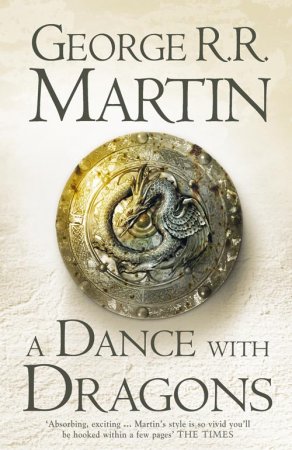 A Dance with Dragons
A Dance with Dragons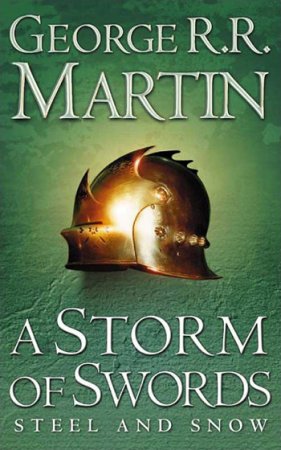 A Storm of Swords
A Storm of Swords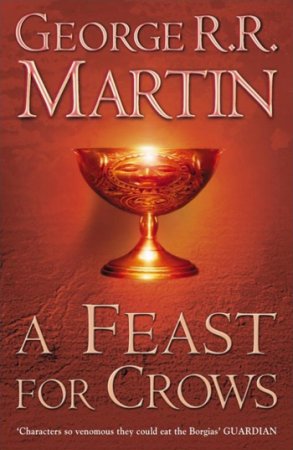 A Feast for Crows
A Feast for Crows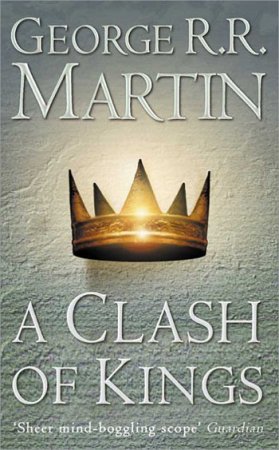 A Clash of Kings
A Clash of Kings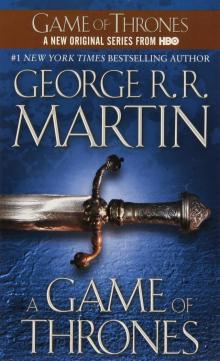 A Game of Thrones
A Game of Thrones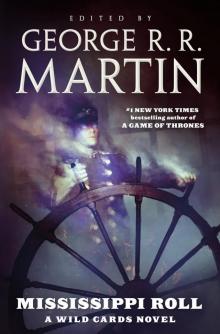 Mississippi Roll
Mississippi Roll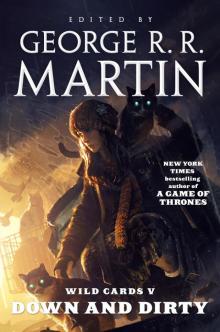 Wild Cards V: Down and Dirty
Wild Cards V: Down and Dirty Busted Flush
Busted Flush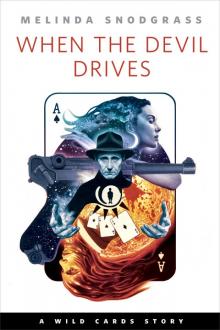 When the Devil Drives
When the Devil Drives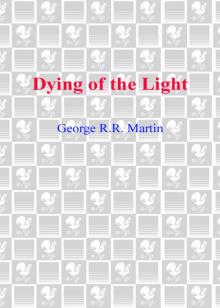 Dying of the Light
Dying of the Light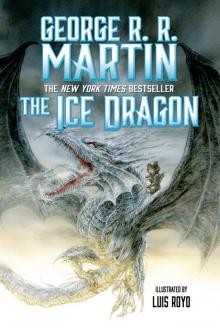 The Ice Dragon
The Ice Dragon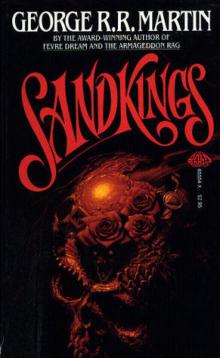 Sandkings
Sandkings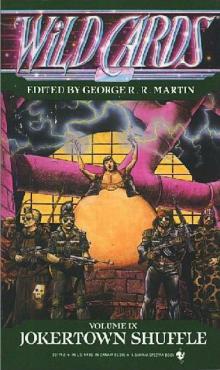 Jokertown Shuffle
Jokertown Shuffle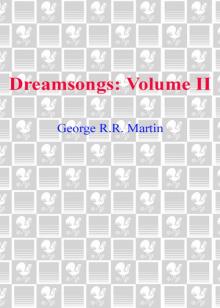 Dreamsongs. Volume II
Dreamsongs. Volume II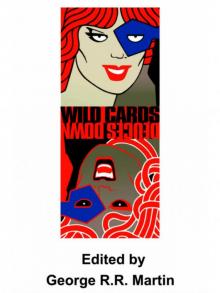 Deuces Down
Deuces Down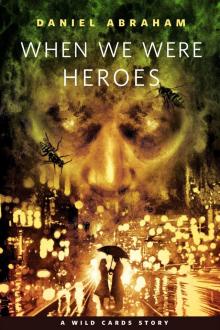 When We Were Heroes
When We Were Heroes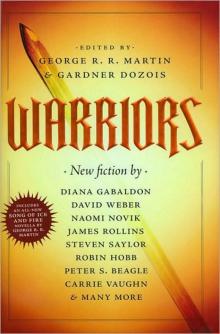 Warriors
Warriors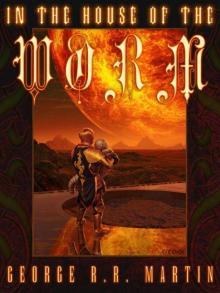 In the House of the Worm
In the House of the Worm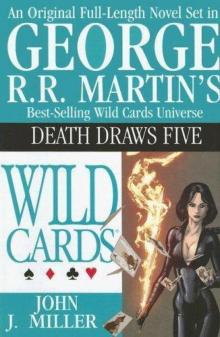 Death Draws Five
Death Draws Five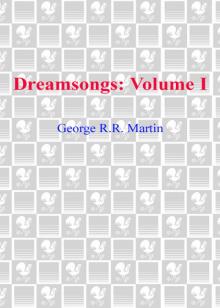 Dreamsongs. Volume I
Dreamsongs. Volume I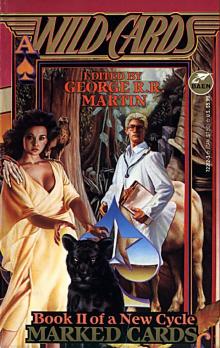 Marked Cards
Marked Cards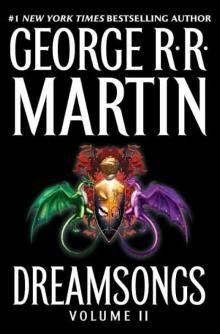 Dreamsongs
Dreamsongs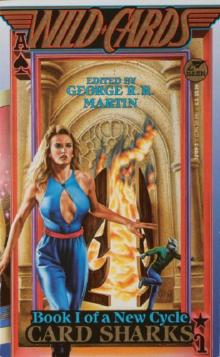 Card Sharks
Card Sharks Dangerous Women
Dangerous Women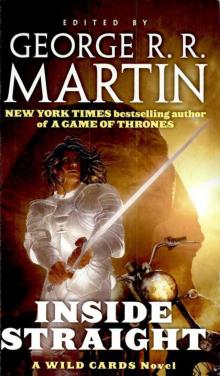 Inside Straight
Inside Straight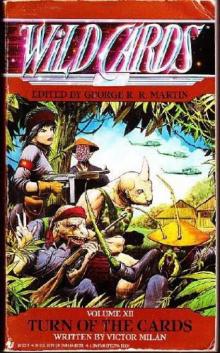 Turn of the Cards
Turn of the Cards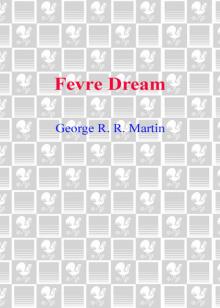 Fevre Dream
Fevre Dream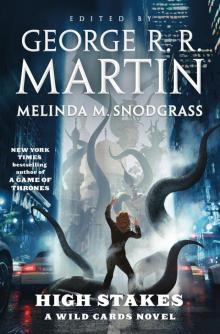 High Stakes: A Wild Cards Novel
High Stakes: A Wild Cards Novel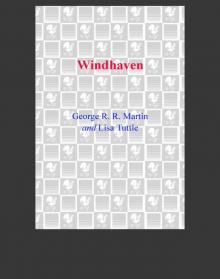 Windhaven
Windhaven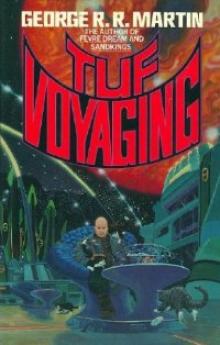 Tuf Voyaging
Tuf Voyaging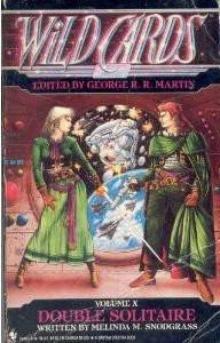 Double Solitaire
Double Solitaire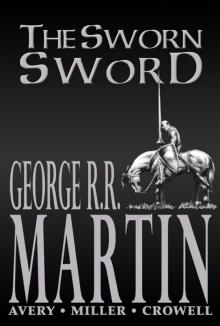 The Sworn Sword
The Sworn Sword Low Chicago
Low Chicago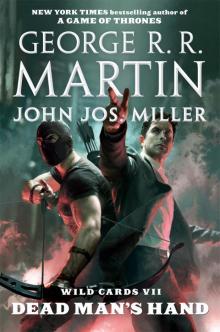 Dead Man's Hand
Dead Man's Hand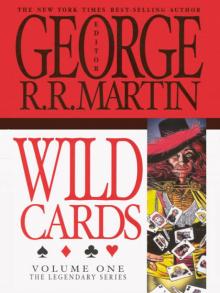 Wild Cards
Wild Cards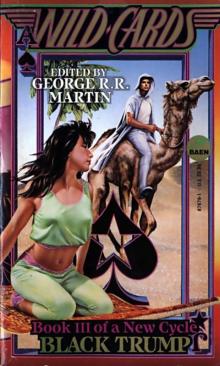 Black Trump
Black Trump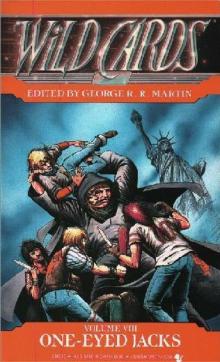 One Eyed Jacks
One Eyed Jacks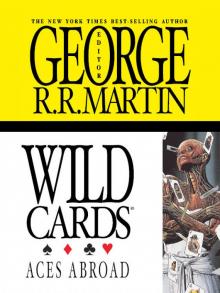 Wild Cards: Aces Abroad
Wild Cards: Aces Abroad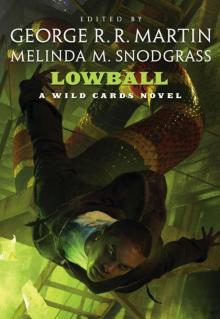 Lowball: A Wild Cards Novel
Lowball: A Wild Cards Novel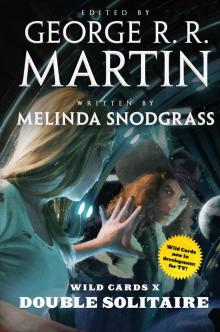 Double Solitaire (2019 Edition)
Double Solitaire (2019 Edition)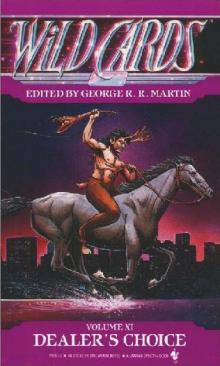 Dealer's Choice
Dealer's Choice Ace in the Hole
Ace in the Hole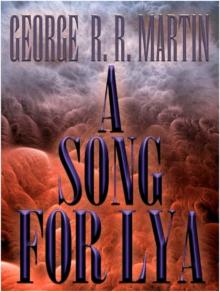 A Song for Lya: And Other Stories
A Song for Lya: And Other Stories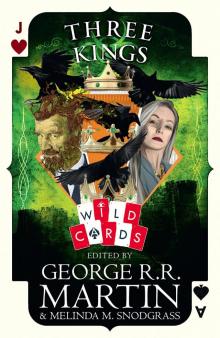 Three Kings
Three Kings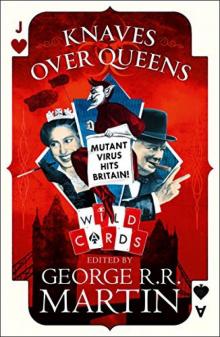 Knaves Over Queens
Knaves Over Queens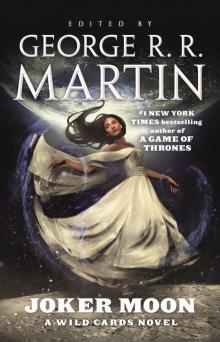 Joker Moon
Joker Moon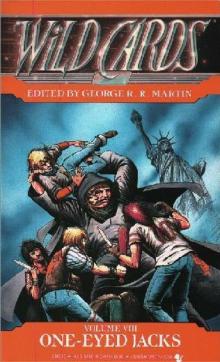 One Eyed Jacks wc-8
One Eyed Jacks wc-8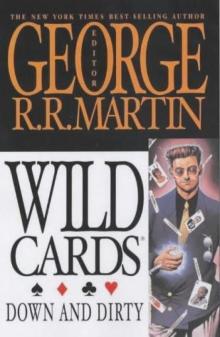 Down And Dirty wc-5
Down And Dirty wc-5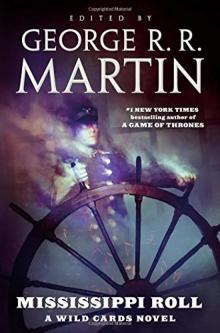 Mississippi Roll_A Wild Cards Novel
Mississippi Roll_A Wild Cards Novel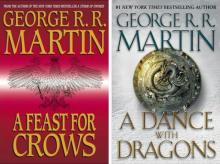 A Feast for Dragons
A Feast for Dragons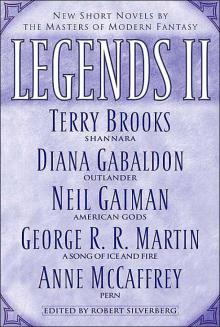 The Sworn Sword ttodae-2
The Sworn Sword ttodae-2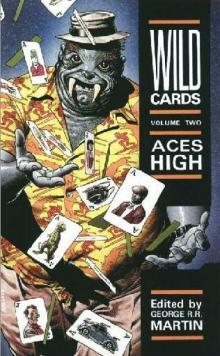 Aces High wc-2
Aces High wc-2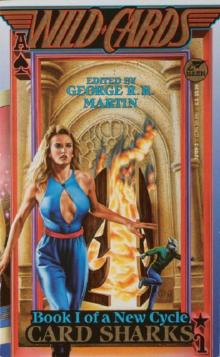 Wild Cards 13 : Card Sharks
Wild Cards 13 : Card Sharks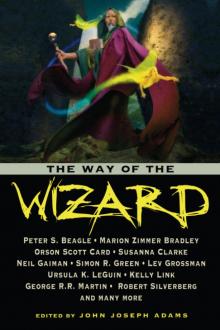 Way of the Wizard
Way of the Wizard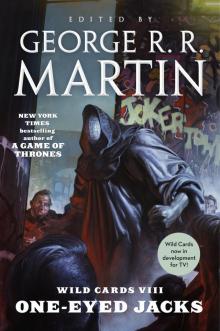 Wild Cards VIII: One-Eyed Jacks
Wild Cards VIII: One-Eyed Jacks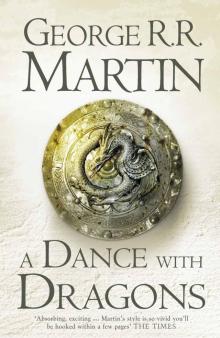 A Dance With Dragons: Book 5 of A Song of Ice and Fire (Song of Ice & Fire 5)
A Dance With Dragons: Book 5 of A Song of Ice and Fire (Song of Ice & Fire 5)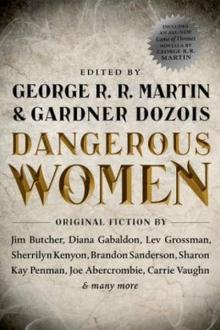 The Princess and The Queen, Or, The Blacks and The Greens (a song of ice and fire)
The Princess and The Queen, Or, The Blacks and The Greens (a song of ice and fire)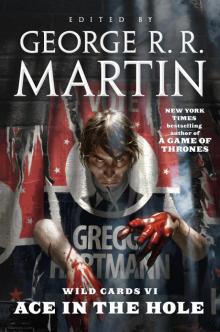 Wild Cards VI--Ace in the Hole
Wild Cards VI--Ace in the Hole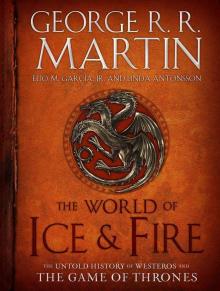 The World of Ice & Fire: The Untold History of Westeros and the Game of Thrones (A Song of Ice and Fire)
The World of Ice & Fire: The Untold History of Westeros and the Game of Thrones (A Song of Ice and Fire)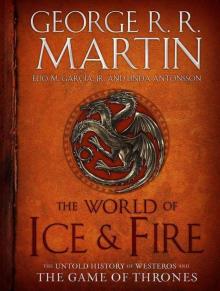 The World of Ice & Fire: The Untold History of Westeros and the Game of Thrones
The World of Ice & Fire: The Untold History of Westeros and the Game of Thrones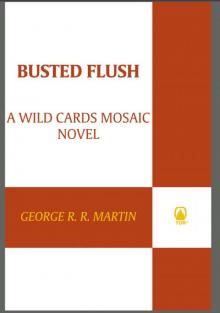 Busted Flush wc-19
Busted Flush wc-19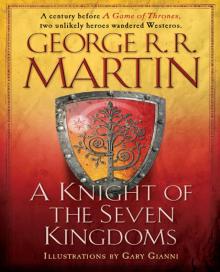 A Knight of the Seven Kingdoms
A Knight of the Seven Kingdoms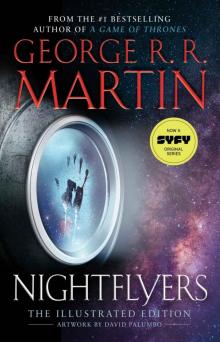 Nightflyers: The Illustrated Edition
Nightflyers: The Illustrated Edition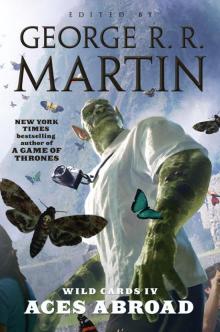 Wild Cards IV
Wild Cards IV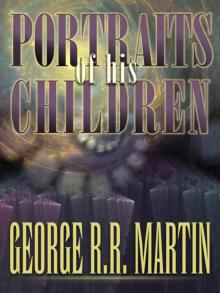 Portraits of His Children
Portraits of His Children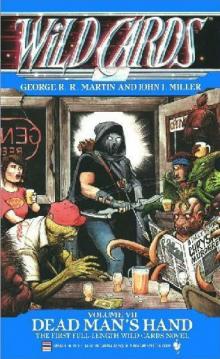 Dead Mans Hand wc-7
Dead Mans Hand wc-7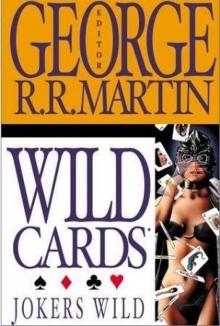 Jokers Wild wc-3
Jokers Wild wc-3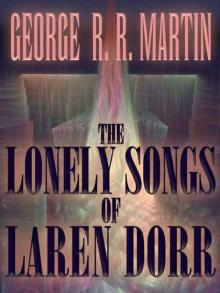 The Lonely Songs of Laren Dorr
The Lonely Songs of Laren Dorr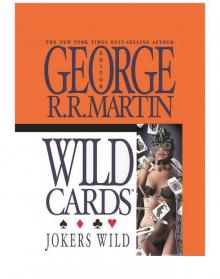 Wild Cards III: Jokers Wild
Wild Cards III: Jokers Wild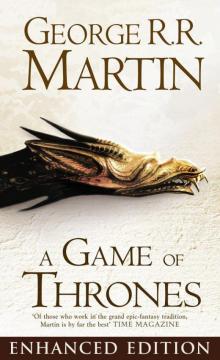 A Game of Thrones Enhanced Edition
A Game of Thrones Enhanced Edition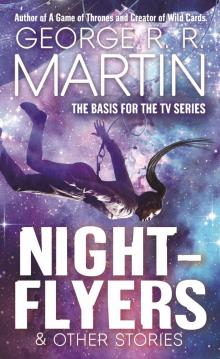 Nightflyers & Other Stories
Nightflyers & Other Stories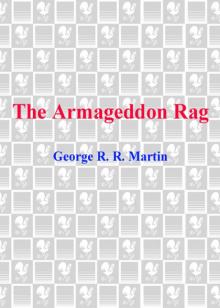 Armageddon Rag
Armageddon Rag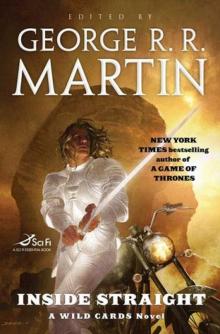 Wild Cards: Inside Straight
Wild Cards: Inside Straight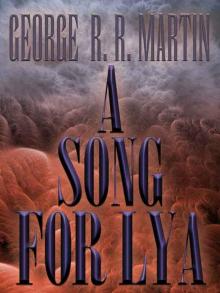 A Song for Lya
A Song for Lya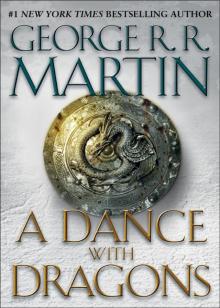 A Dance with Dragons: A Song of Ice and Fire: Book Five
A Dance with Dragons: A Song of Ice and Fire: Book Five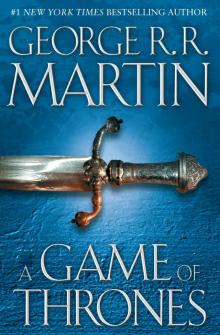 Song of Fire & Ice 01 - A Game of Thrones
Song of Fire & Ice 01 - A Game of Thrones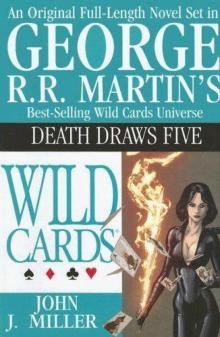 Death Draws Five wc-17
Death Draws Five wc-17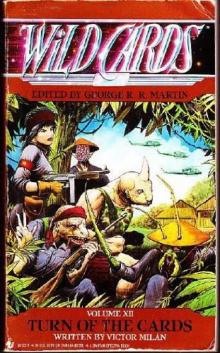 Turn of the Cards w-12
Turn of the Cards w-12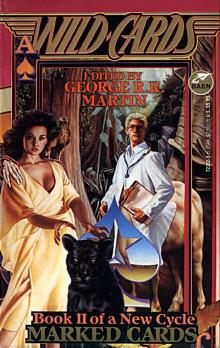 Wild Cards 14 - Marked Cards
Wild Cards 14 - Marked Cards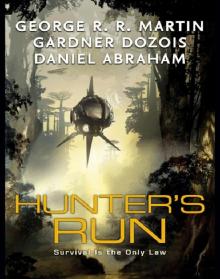 Hunter's Run
Hunter's Run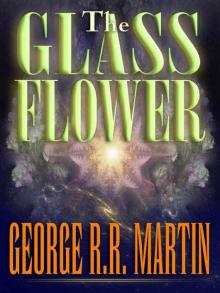 The Glass Flower
The Glass Flower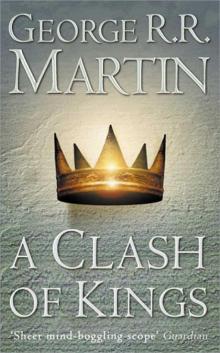 A Clash of Kings asoiaf-2
A Clash of Kings asoiaf-2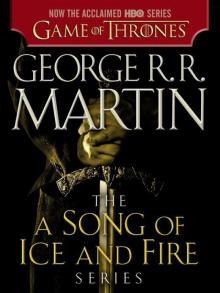 A Game of Thrones 5-Book Bundle: A Song of Ice and Fire Series: A Game of Thrones, A Clash of Kings, A Storm of Swords, A Feast for Crows, and A Dance with Dragons (Song of Ice & Fire)
A Game of Thrones 5-Book Bundle: A Song of Ice and Fire Series: A Game of Thrones, A Clash of Kings, A Storm of Swords, A Feast for Crows, and A Dance with Dragons (Song of Ice & Fire)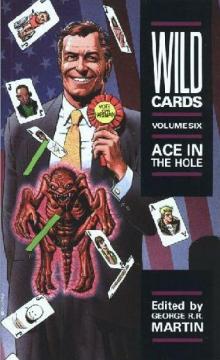 Ace In The Hole wc-6
Ace In The Hole wc-6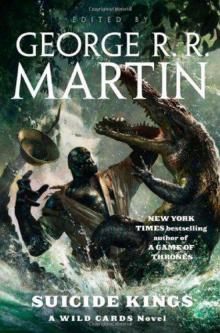 Suicide Kings wc-20
Suicide Kings wc-20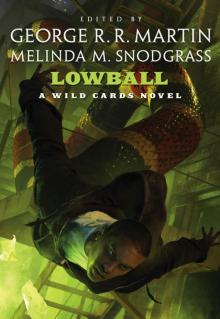 Lowball
Lowball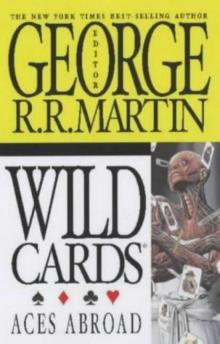 Aces Abroad wc-4
Aces Abroad wc-4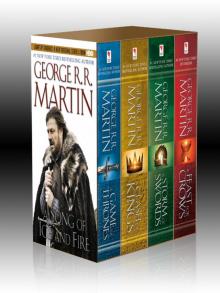 George R. R. Martin's a Game of Thrones 4-Book Bundle
George R. R. Martin's a Game of Thrones 4-Book Bundle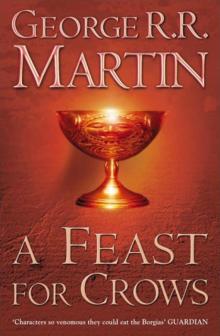 A Feast for Crows asoiaf-4
A Feast for Crows asoiaf-4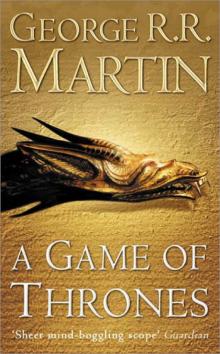 A Game of Thrones asoiaf-1
A Game of Thrones asoiaf-1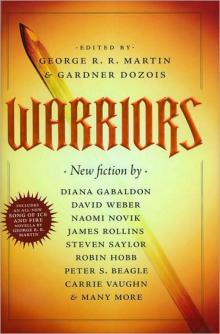 The Mystery Knight ttodae-3
The Mystery Knight ttodae-3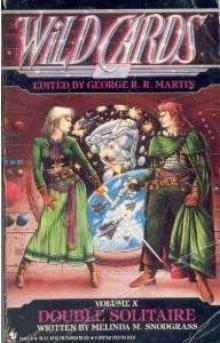 Double Solitaire w-10
Double Solitaire w-10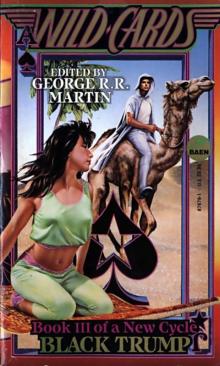 Wild Cards 15 - Black Trump
Wild Cards 15 - Black Trump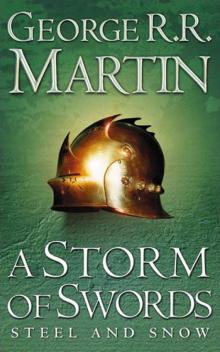 A Storm of Swords asoiaf-3
A Storm of Swords asoiaf-3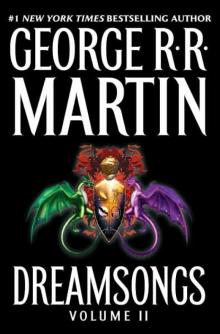 The Hedge Knight ttodae-1
The Hedge Knight ttodae-1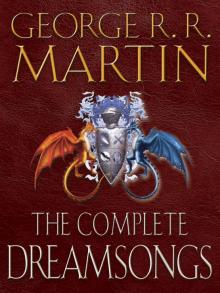 Dreamsongs 2-Book Bundle
Dreamsongs 2-Book Bundle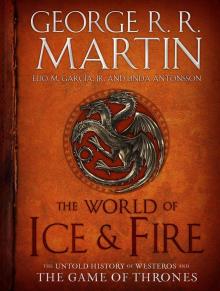 The World of Ice & Fire
The World of Ice & Fire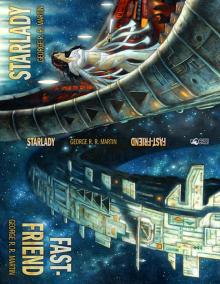 Starlady & Fast-Friend
Starlady & Fast-Friend Old Mars
Old Mars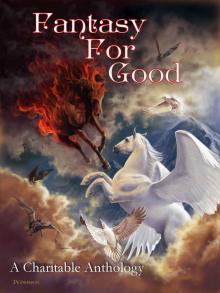 Fantasy For Good: A Charitable Anthology
Fantasy For Good: A Charitable Anthology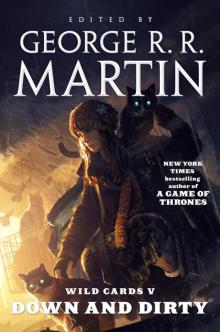 Wild Cards V
Wild Cards V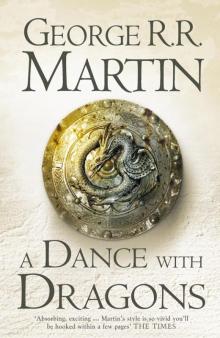 A Dance with Dragons asoiaf-5
A Dance with Dragons asoiaf-5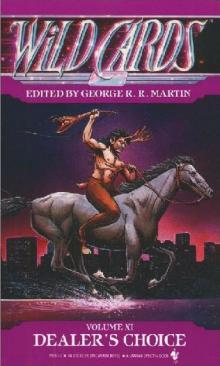 Dealer's Choice w-11
Dealer's Choice w-11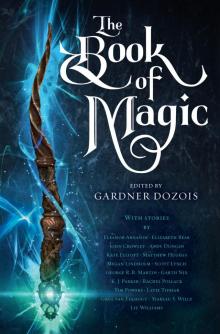 The Book of Magic
The Book of Magic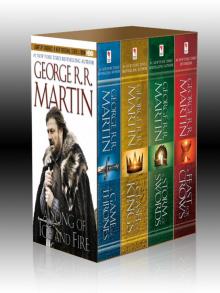 A Game of Thrones 4-Book Bundle
A Game of Thrones 4-Book Bundle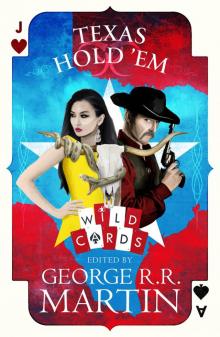 Texas Hold 'Em
Texas Hold 'Em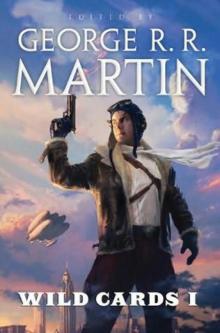 Wildcards wc-1
Wildcards wc-1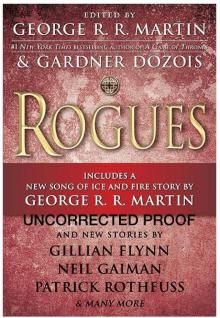 Rogues
Rogues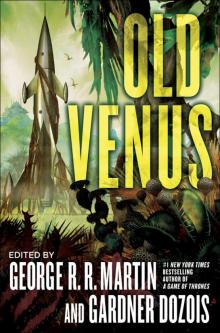 Old Venus
Old Venus